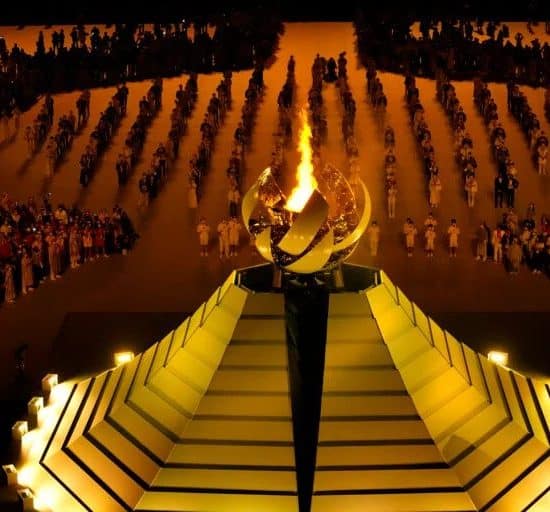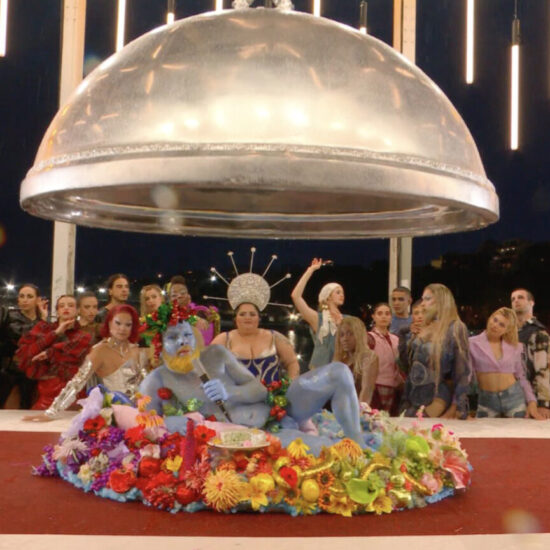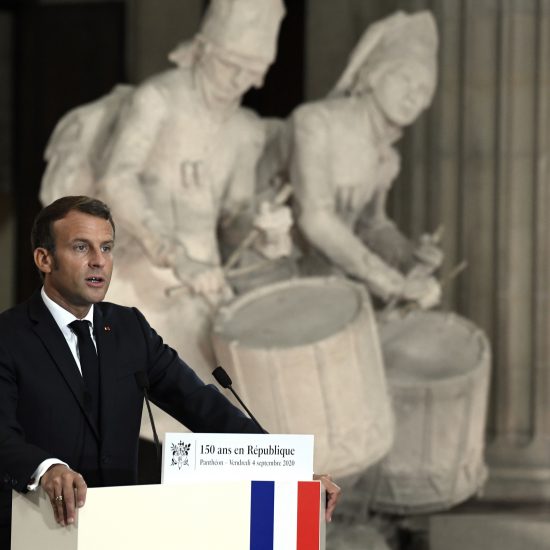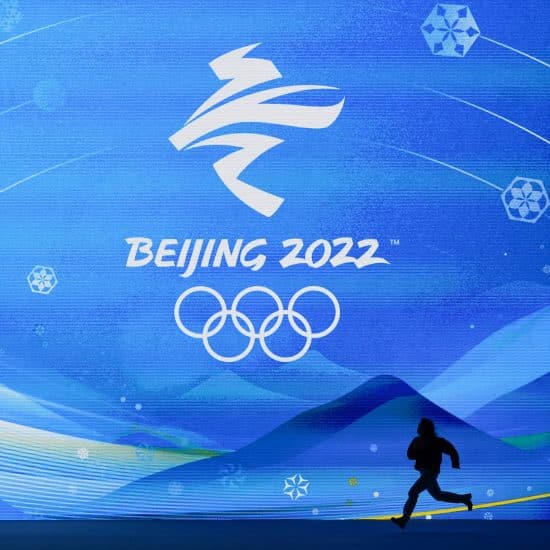PYEONGCHANG, South Korea (RNS) — To those watching on TV, religion may seem absent from the Winter Olympic Games. Away from the spotlight, though, an estimated 3,000 missionaries are on hand.
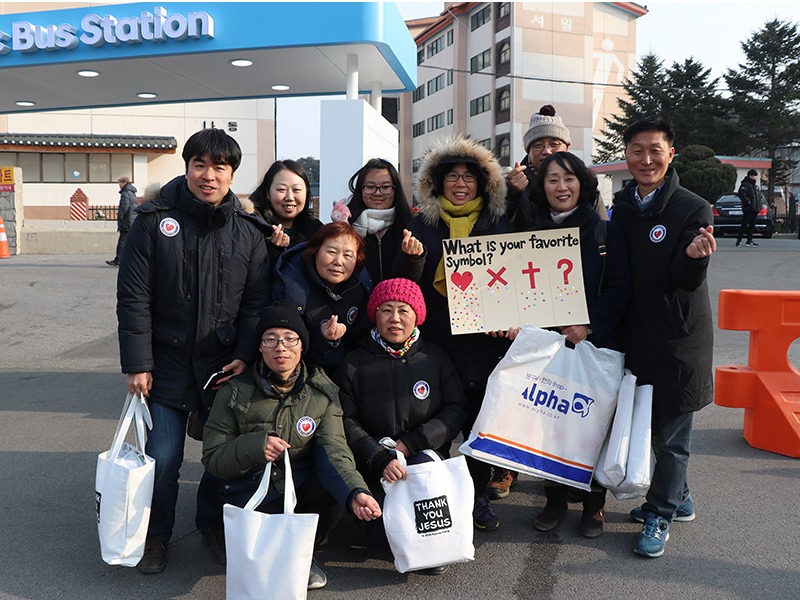 Volunteers with Cru (Campus Crusade for Christ) stand at the bus station by Olympic Park, asking spectators their favorite symbol, and using it as a connection to start a conversation on religion, on Feb. 8, 2018, in South Korea. (RNS photo: Madeline C. Mulkey) About 2,000 missionaries — South Korean and international — are working in the city of Gangneung, where the indoor Olympic events are being held. The remaining 1,000 are working in Pyeongchang, site of ski, snowboard and other events.
Volunteers with Cru (Campus Crusade for Christ) stand at the bus station by Olympic Park, asking spectators their favorite symbol, and using it as a connection to start a conversation on religion, on Feb. 8, 2018, in South Korea. (RNS photo: Madeline C. Mulkey) About 2,000 missionaries — South Korean and international — are working in the city of Gangneung, where the indoor Olympic events are being held. The remaining 1,000 are working in Pyeongchang, site of ski, snowboard and other events.
There is no reliable count of missionaries at Olympics past. But the number of local missionaries here far exceeds previous games, said Marty Youngblood, leader of the Georgia Baptist Convention mission team, who is at his fifth Olympics this year.
South Korea, which is 29 percent Christian, and among whom Protestants predominate, enjoys high levels of religious tolerance. Buddha’s birthday and Christmas are both national holidays.
The Winter Games have attracted teams of Baptists, Presbyterians and Methodists. Jehovah’s Witnesses and Mormons also abound, each group sharing the gospel in its own way. The United Christian Churches of Korea, a coalition of 144 local congregations, is helping foreign mission groups to arrange housing and ministry sites and learn about Korean culture.
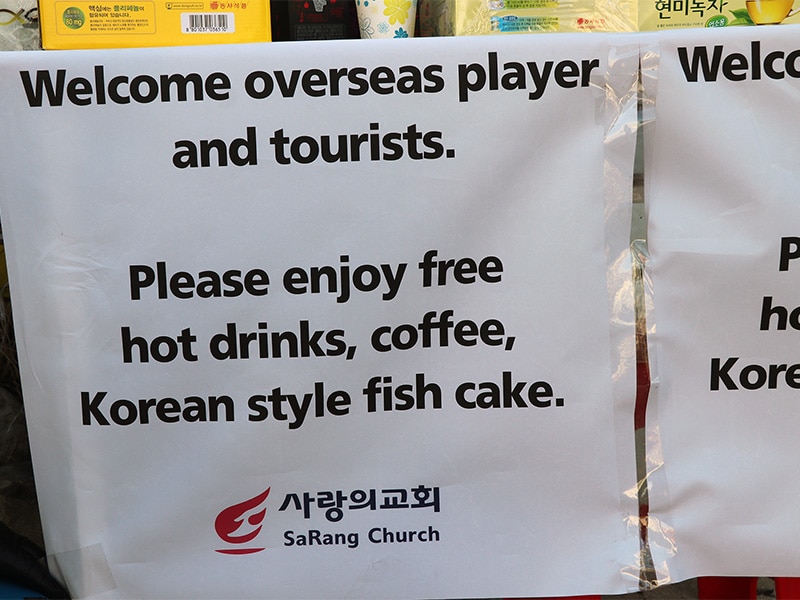 Missionary groups offer drinks and food to athletes and tourists in South Korea for the Olympics. (RNS photo: Madeline C. Mulkey)Local churches are taking advantage of an Olympics at their doorstep. Many have set up welcome stations in parking lots, where they give away snacks, coffee and Christian literature.
Missionary groups offer drinks and food to athletes and tourists in South Korea for the Olympics. (RNS photo: Madeline C. Mulkey)Local churches are taking advantage of an Olympics at their doorstep. Many have set up welcome stations in parking lots, where they give away snacks, coffee and Christian literature.
In addition to its coffee and snack giveaway, Somang Presbyterian Church — located in the shadow of the Olympic venues — is showcasing a live orchestra and church members dressed in traditional costume. It’s just one of the 26 local churches in Gangneung with Olympic outreach ministries.
Then there’s the Church of Jesus Christ of Latter-day Saints’ Helping Hands Center, a two-story building on prime real estate across the street from the train station in Gangneung. Working there is Coloradan Chandler Petry, chosen by her church with a small group of other Mormon missionaries already in Korea to serve at the Olympics.
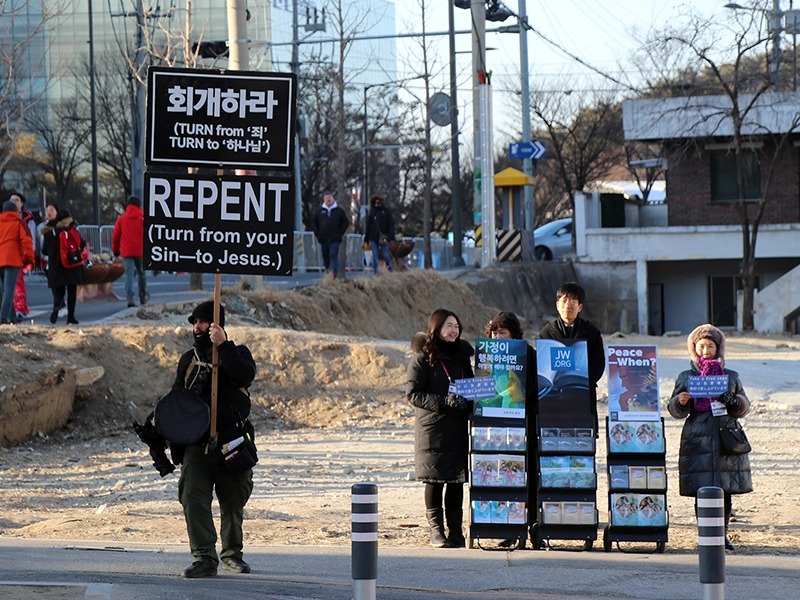 Jehovah’s Witness volunteers, right, distribute materials as an independent street preacher passes by, left, on Feb. 10, 2018, near Olympic venues in Gangneung, South Korea. (RNS photo: Madeline C. Mulkey)The center’s multilingual staff will give athletes, members of the media and any Olympic spectator a warm drink and a place to recharge their phones. But its main goal, according to the church’s website, “is for as many as possible to see the light of the gospel of Jesus Christ in the eyes of the members and missionaries.”
Jehovah’s Witness volunteers, right, distribute materials as an independent street preacher passes by, left, on Feb. 10, 2018, near Olympic venues in Gangneung, South Korea. (RNS photo: Madeline C. Mulkey)The center’s multilingual staff will give athletes, members of the media and any Olympic spectator a warm drink and a place to recharge their phones. But its main goal, according to the church’s website, “is for as many as possible to see the light of the gospel of Jesus Christ in the eyes of the members and missionaries.”
The Jehovah’s Witnesses have sent about 1,000 missionaries to the Winter Games, far more than to previous Olympics, said Steven Park, public information officer for the Jehovah’s Witness Korea branch. He says that the work they do in Gangneung and Pyeongchang is no different from the ministry they do elsewhere and that some missionaries will remain in the area after the Olympics.
One of the most popular tools of ministry for these Olympic missionaries is lapel pin trading.
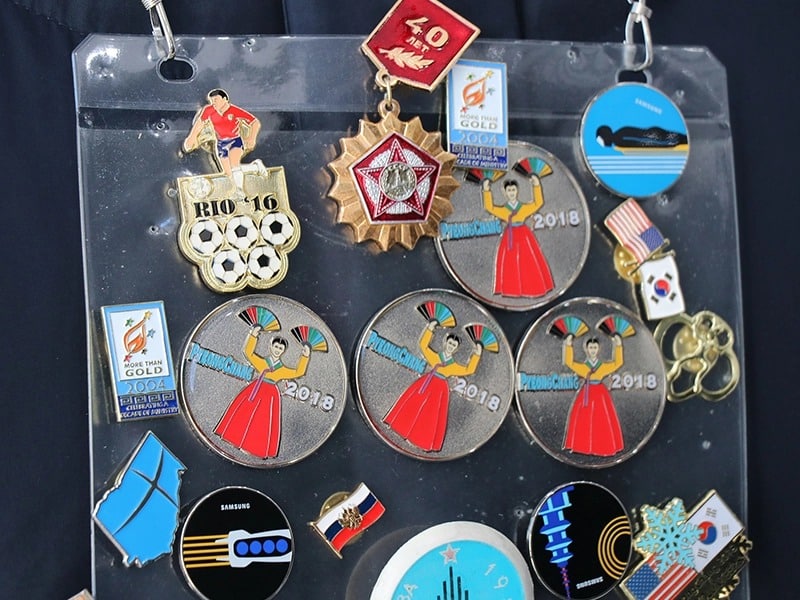 Trading lapel pins is one strategy missionaries use to start discussions with Olympic athletes and visitors in South Korea for the games. (RNS photo: Madeline C. Mulkey)Myungsu No, a campus minister in Seoul, says his students from the Baptist Student Union use pin trading — a pastime at this and previous Olympics — to spread the gospel. While athletes and spectators trade pins that typically depict a certain country, sport or team, mission groups give away a “More Than Gold” lapel pin, borrowing the slogan a consortium of missionary groups adopted in the 1990s to brand their Olympic outreach.
Trading lapel pins is one strategy missionaries use to start discussions with Olympic athletes and visitors in South Korea for the games. (RNS photo: Madeline C. Mulkey)Myungsu No, a campus minister in Seoul, says his students from the Baptist Student Union use pin trading — a pastime at this and previous Olympics — to spread the gospel. While athletes and spectators trade pins that typically depict a certain country, sport or team, mission groups give away a “More Than Gold” lapel pin, borrowing the slogan a consortium of missionary groups adopted in the 1990s to brand their Olympic outreach.
Psalm 119:127 declares that the commands of God are loved “more than gold.” The reference to gold at the Olympics, where athletes’ highest reward for their performance is a gold medal, is borrowed by the missionaries to suggest there is a higher reward to be sought through faith.
Veteran missionaries trained in the art of Olympic pin trading are passing down the skill to the new generation. The missionaries make an initial pin trade using a nonreligious pin they have collected — say, that of the USA ski jump team. This often prompts a conversation and a chance for the missionary to offer the trader the “More Than Gold” pin as a gift.
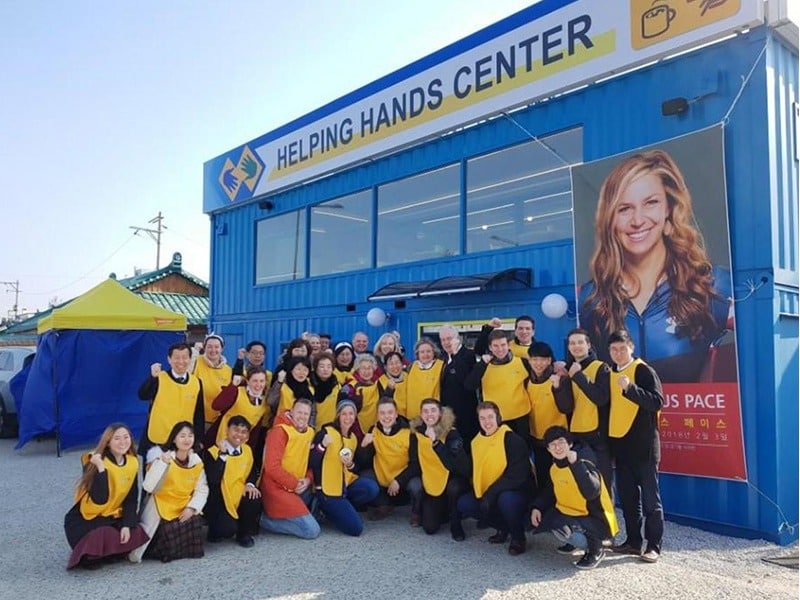 Missionaries and volunteers gather outside the Mormon Helping Hands Center in Gangneung, South Korea. Photo courtesy of Helping Hands CenterSome missionaries who work elsewhere in Asia have decided to take a break to focus on the Olympics.
Missionaries and volunteers gather outside the Mormon Helping Hands Center in Gangneung, South Korea. Photo courtesy of Helping Hands CenterSome missionaries who work elsewhere in Asia have decided to take a break to focus on the Olympics.
American Kathryn Daniel, based in China, says she felt called to evangelize at the Winter Games because of her personal connection with Korea. She spent 12 years of her life in the country with her missionary parents.
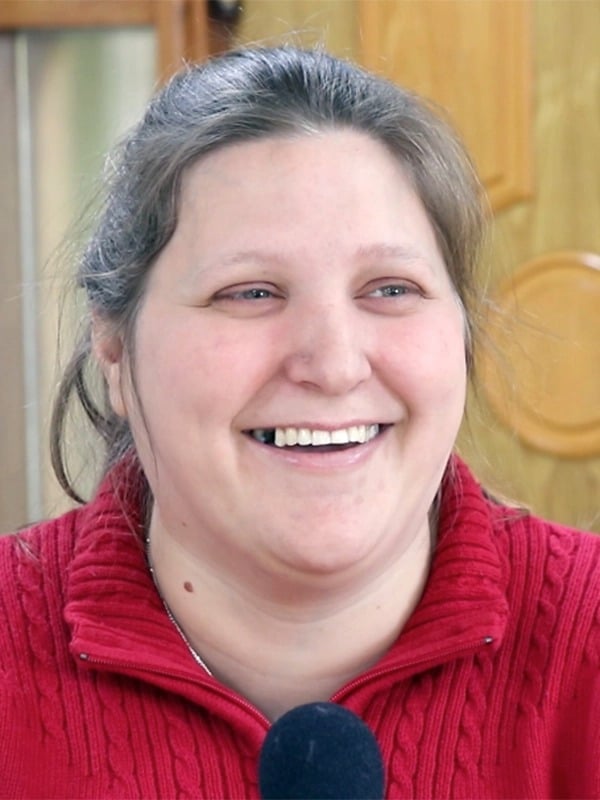 Kathryn Daniel traveled to South Korea in order to evangelize at the Olympics. (RNS photo: Madeline C. Mulkey)Nine months ago, she heard her father was getting a group of other retired missionaries to go to the Olympics, and she thought, “I think this is God telling me to go, ‘Kathy, just go.’” Daniel is staying in Korea for a week, working with the group from the Georgia Baptist Convention.
Kathryn Daniel traveled to South Korea in order to evangelize at the Olympics. (RNS photo: Madeline C. Mulkey)Nine months ago, she heard her father was getting a group of other retired missionaries to go to the Olympics, and she thought, “I think this is God telling me to go, ‘Kathy, just go.’” Daniel is staying in Korea for a week, working with the group from the Georgia Baptist Convention.
The first weekend of the Olympics, mission groups passed out Christian literature in the Olympic park unimpeded.
Then Olympic park officials posted signs informing visitors that passing out religious material in the park was banned, and any materials found would be confiscated.
Youngblood, of the Georgia Baptist Convention, said he is not concerned. His missionaries are also using the pin trading and only give pamphlets to those who want to learn more.
And A-lim Jang, a recent university graduate and student leader with Baptist Student Union missionaries, said pin trading has allowed her and her colleagues to share the gospel “with many people that God puts in our path.”
Madeline C. Mulkey is a senior at the University of South Carolina School of Journalism and Mass Communications. She is doing a special online documentary and a series of articles on “God at the Game.” Her project is funded in part by the Magellan Scholarship Program.


